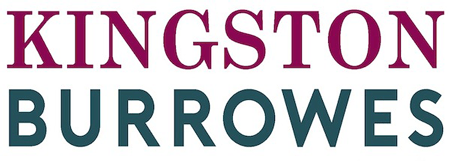If your business is experiencing financial challenges, as many will be this year, then the best thing you can do is to face the problem head on. It might be tempting to ignore financial problems in the hope that they go away, but of course they rarely do, and the best thing you can do is to get some specialist advice.
Seeking professional guidance as soon as possible will ensure that you achieve the best possible outcome from the situation. As a trusted local accountant for small business, we are well placed to review your financial situation and provide the support and guidance you need to ultimately achieve the best possible outcome.
We will examine your incomings and outgoings and make appropriate recommendations. This may involve making adjustments to how you manage your cash flow, suggestions for cost cutting or helping identifying commercial funding. One thing to note is the importance of maintaining up-to- date financials as this information will be crucial to any external specialist assessing your situation and establishing where the challenges lie.
Once we have reviewed the information, we will be able to make a final recommendation regarding insolvency and refer you to a liquidator if necessary. Ultimately the best course of action you can take if you are concerned about your businesses long term viability, is to get your financials up to date and get in touch to talk it through with us.
Insolvency – is your company insolvent?
Insolvency comes in two forms, cash-flow insolvency, and balance sheet insolvency.
Cash-flow insolvency means that you have enough assets to pay what you owe, but you do not have the right form of payment at that time. Balance-sheet insolvency is when you don’t have enough assets to pay all your debts.
To determine whether your company is insolvent you will need to review the due dates for individual payments as opposed to looking at the total amount owed. If you do not have the capital to complete the payments when they’re due, then your business is insolvent.
A small business accountant can help with this stage of the process, as not all debts will need immediate payment. The rules applied will vary depending on the supplier, bank, HMRC etc.
Liquidation
A company facing insolvency could choose liquidation to pay off their debts in advance of dissolving the company. Their assets would be turned into cash, or “liquidated”, and the money would be used to absolve them of any debts.
Liquidation could also apply when a business sells some assets without ceasing the business altogether. As example would be a restaurant group which closes one of its locations and sells it to a liquidation company.
Types of Liquidation
A company could be solvent or insolvent and still be liquidated but there is more than one type of liquidation that could occur.
Creditors’ Voluntary Liquidation (CVL)
This is the most common form of liquidation and takes place when the directors of a company agree that the company can no longer continue trading and that it should be liquidated.
A qualified Insolvency Practitioner would be appointed as the Liquidator and they would manage the process of liquidating the assets and, where possible, pay debts with the capital.
Compulsory Liquidation
Compulsory liquidation occurs when a company is legally bound to wind up their business. Often this follows long standing unpaid debts, and a creditor applying to the court for a winding-up order to be issued.
Once the order is made, the business is put into compulsory liquidation and the Official Receiver, an officer of the court from the Insolvency Service, is appointed as Liquidator.
In this instance, the assets are usually sold off for minimal profit and there is little return to the creditors.
Members’ Voluntary Liquidation
The final type of liquidation is known as Members’ Voluntary Liquidation and in this case the business remains solvent. In this scenario the assets of the company are greater than the debts and liabilities. The business shareholders would agree to cease trading and following liquidation, the remaining capital would split between the relevant parties.
We are here to support you
As mentioned above, if you have concerns about your company’s finances or future, now is the time to seek specialist advice. Please get in touch with the Kingston Burrowes team today, who will be happy to provide further guidance and support.




